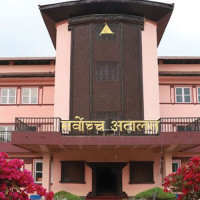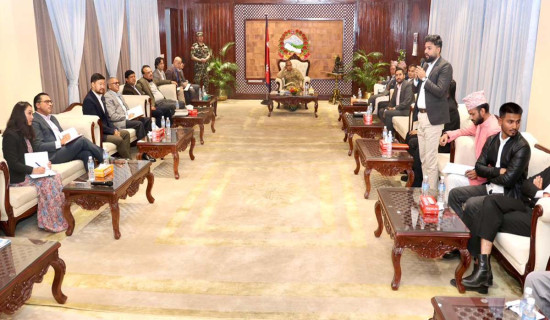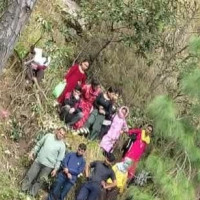- Thursday, 30 October 2025
Positive Economic Trends
The annual rate of inflation in Nepal eased to 3.75 per cent in mid-March from 4.82 per cent a year ago, slightly easing the burden on the consumers reeling from the onslaught of high inflation. This good news comes at a time when the wages of the people have stagnated for years now while the prices of goods and services have soared past affordability in some cases. Inflation and consumers' purchasing power go in opposite directions. Subsiding inflation means the goods and services have become more affordable, potentially bringing stability to an economy. That said, unless this positive development is felt by commoners at the bottom rung of the economic ladder, the progress doesn't mean much.
At the same time, remittance inflows increased by 9.4 per cent to Rs. 1051.77 billion in the first eight months of the current year compared to an increase of 18.3 per cent in the same period of the previous year. But the question of pouring the remittance into productive sectors remains. Over 90 per cent of our remittance is used for the consumption of goods, an overwhelming of which are imported and many of which are not essential. Without investing the remittance on productive sectors – such as to generate capital and add value to domestic enterprises – the money won't go far enough to generate much-needed prosperity.
What's more, the current account remained at a surplus of Rs. 180.08 billion in the review period compared to a surplus of Rs. 167.45 billion in the same period of the previous year, with the Balance of Payment (BoP) remaining at a surplus of Rs. 310.37 billion. Additionally, the gross foreign exchange reserves increased 18 per cent to 2409.25 billion in mid-March 2025 from Rs. 2041.10 billion in mid-July 2024. Hidden behind this mounting foreign exchange reserves, according to some experts, are emerging economic problems. The purpose of money is fulfilled when it is invested to generate more wealth. Steps must be taken to leverage this money to create employment opportunities and achieve prosperity by building efficient infrastructure and investing in people's lives and livelihoods.
Despite the problems, the government is taking action not only to give momentum to the economy but also to ensure that it remains on track. Addressing the opening session of the 74th Annual General Meeting of the Nepal Chamber of Commerce (NCC) on Wednesday, Prime Minister Oli encouraged industries and businesses to move forward competitively and innovatively and also by using science and technology. The PM also urged business entrepreneurs to invest confidently in economic development as the country has been enjoying unshakable political stability.
Also addressing the meeting, NCC president Kamlesh Kumar Agrawal highlighted the need to establish an international-level exhibition centre in the country to allow for integrated promotion, marketing, and quality measurement of local products through a one-stop system. The government should heed this call and do what is needed. He also pointed out the policy challenges afflicting the electricity production sector and explained how provisions in the Energy Bill, as well as decisions from the courts and directives from the Ministry of Forests, have prevented hydropower projects from taking off. The government should take these words seriously and leap into action to remove the issues plaguing the hydropower sector. The urgency of doing this should be taken seriously.



-original-thumb.jpg)



-square-thumb.jpg)









